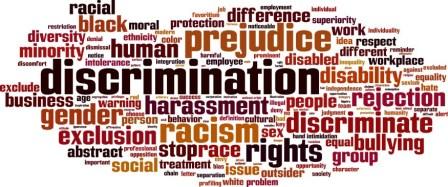Ending discrimination is the responsibility of all, everyone can play a part in ending discrimination and can try to make a difference big or small. Discrimination undermine efforts to achieve a more just and equitable world and causes pain and suffering for many.
Zero discrimination day is celebrated on 1st of March, call for ending discrimination and raise voice for the right to equality on every basis whether its gender, sexuality, nationality, ethnicity, skin, color, age etc…
India is a country with a population of 1.32 billion composed of people with different religion, caste, custom, language, and race living together. This diversity of India makes it unique and considering it, the Indian constitution has given us the right to equality (article-14).

Still people discriminate between boys and girls, women are ignored, casteism is still prevailing, powerful try to suppress others, minority groups are still fighting to get recognized. Many a times laws result in people being treated differently, excluded from essential services or being subject to undue restrictions on how they live their lives, simply because of who they are. One such was section 377 of Indian penal court that criminalized homosexuality. The removal of this law is India’s step towards zero discrimination.
The UN first celebrated Zero Discrimination Day on March 1, 2014 after UN AIDS, a UN program on Human Immune Deficiency virus (HIV) and Acquired Immune Deficiency Syndrome (AIDS), launched its Zero Discrimination Campaign on World AIDS Day in December 2013.
Organizations like the UN actively promote the day with various activities to celebrate everyone right to live a full life with dignity regardless of age, gender, sexuality, nationality, ethnicity, skin colour, height, weight, profession, education and beliefs.
The symbol for Zero Discrimination Day is the butterfly, widely used by people to share their stories and photos as a way to end discrimination and work towards positive transformation. The theme of this year is to challenge people to act against laws that discriminate in their country.
